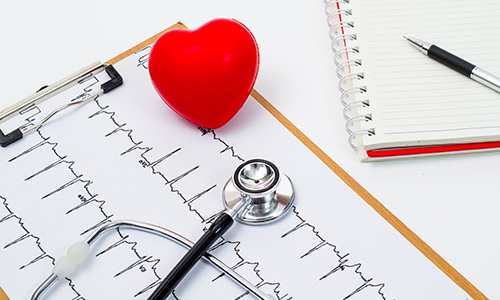Electrocardiography (ECG / EKG) is a medical test to detect heart anomalies by measuring electrical activity produced by the heart as it contracts. Electrocardiography can help diagnose several health conditions such as cardiovascular arrhythmia, cardiovascular dilation, cardiovascular inflammation and cardiovascular coronary. Patients may need the test for screening or occupational requirements, or if they have a personal or family history of heart disease, diabetes or other risks. Cardiovascular specialist doctors can perform Electrocardiography in Awal Bros Hospital within the sophisticated facilities to give satisfactory services to patients.
Electrocardiography is a safe and painless test which only takes a few minutes. Leads from an electrocardiograph machine are attached to the skin on patients’ arms, legs and chest using sticky patches. These leads read signals from the heart and send this information to the electrocardiograph. The machine then prints the reading on a paper strip or on a screen.
Electrocardiography Preparation
There are different main types of electrocardiography: resting electrocardiography and exercise electrocardiography. Resting electrocardiography is used to know how the heart is working while the body is at rest. Patients will be asked to lie down and relax while the heartbeat is being recorded. There is no need to do anything different or prepare before having resting electrocardiography.
Exercise electrocardiography is used to know how patients’ heart reacts to activity and patients will be asked to walk or run on a treadmill or cycle on an exercise bike while the heartbeat is recorded. Before the test, make sure that you are wearing comfortable clothes and shoes that you can exercise in. Let your doctor know if you have diabetes. Avoid eating, smoking, or drinking caffeinated beverages before the test. On the day of the test, use loose and comfortable clothing. Report any chest pains or other complication you notice on the day of the test.

